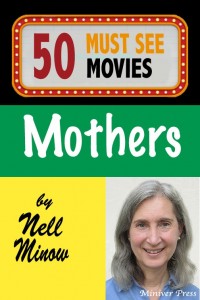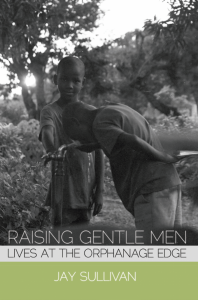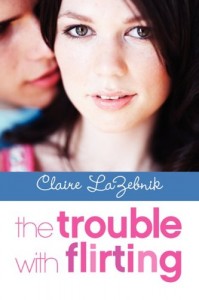Free This Weekend! 50 Must-See Movies: Mothers
Posted on May 4, 2013 at 6:00 am
In honor of Mother’s Day next Sunday, I’m making my ebook, 50 Must-See Movies: Mothers free all weekend! Post a review on Amazon and you can get any other Miniver Press ebook free as well. The book is dedicated to my own wonderful wise, witty, and always-on-our-side mother, who made all three of her daughters the stars of her story. Here’s the book’s introduction:
No relationship is more primal, more fraught, more influential, more worried over, more nourishing when good and more devastating when bad that our connection to our mothers. The first eyes to look at us with love, the first arms to hold us, Mom is the one who first keeps us fed and warm, who applauds our first steps and kisses our scrapes and takes our temperature by kissing our forehead. She’s also the one who keeps people in endless years of psychoanalysis for failing to make her children feel loved and safe. Mom inspires a lot of movies in every possible category, from comedy to romance to drama to crime to animation to horror, from the lowest-budget indie to the biggest-budget prestige film. A lot of women have been nominated for Oscars for playing mothers and just about every actress over age 20 has appeared as a mother in at least one movie.
There are innumerable ways of mothering and all of them show up in the movies. There are cookie-baking, apron-wearing mothers who always know just the right comforting thing to say. There are stylish, sophisticated, wealthy mothers and mothers who do not have enough money to feed their children. There are mothers with PhDs and mothers who cannot read. There are mothers of every race and religion and many species on earth and in outer space (remember “Alien”).
There are terrifying mothers who abuse or abandon their children or coldly deploy them like weapons of mass destruction. There are mothers who give good advice and endless support and mothers who try to push their children to take the wrong jobs and marry the wrong people. There are super-strict mothers and super-lax mothers, mothers who want to know every detail of their children’s lives even when they are grown up and mothers who barely remember that they have any children at all even when they are young. There are mothers of children with special needs who fight fiercely to make sure they have the fullest and most independent lives they can. There are children who love and support their mothers and children who break their mothers’ hearts with their selfishness and cruelty.
And there are those very special souls who remind us that motherhood does not require a biological connection. Stepmothers and adoptive mothers are as vitally important on screen as they are in the lives of those lucky enough to be mothered by them.
“A boy’s best friend is his mother,” says a character whose mother is central to the story even though she never appears in the film. (Spoiler alert: the quote comes from Norman Bates in “Psycho.”) In “Stop or My Mom Will Shoot,” tough guy Sylvester Stallone plays a cop who mother comes along on his investigation whether he wants her to or not. In “Oedipus Wrecks,” one of three short films that make up the compilation “New York Stories,” Woody Allen plays a lawyer whose mother finds the ultimate way to embarrass him. And don’t get me started on Jason’s mother in the “Friday the 13th” movies.
I have selected 50 of my favorite movie mothers, including classic films like “The Sound of Music” and “Little Women” along with forgotten or overlooked films like “Stella Dallas,” “Claudia and David,” and “Dear Frankie.” Actresses like Anne Revere and Spring Byington made careers out of wonderful performances as mothers and I have included some of their best. I have a special affection for those based on real-life mothers, especially those based on the mothers of the writers who told their stories, like Sally Field’s Oscar-winning performance in “Places in the Heart.” But it is clear that in some way each of the mothers in these movies is inspired by the unique joys and frustrations of the woman we love first.



